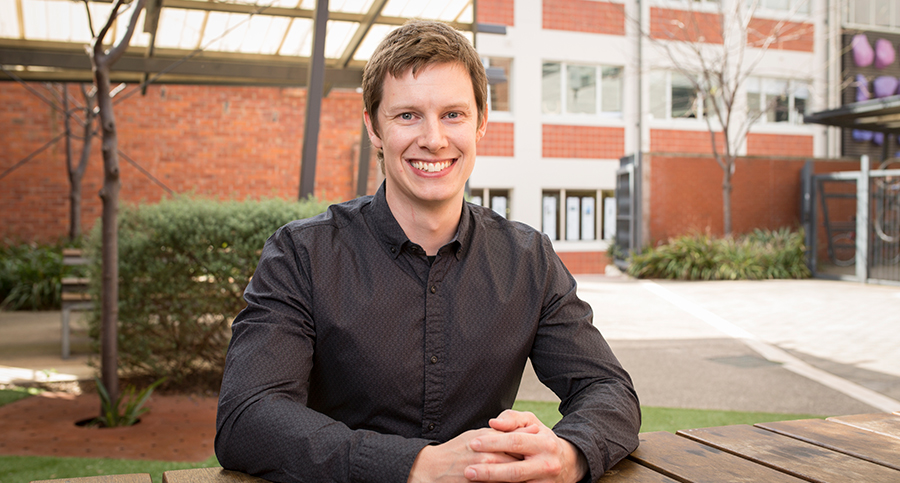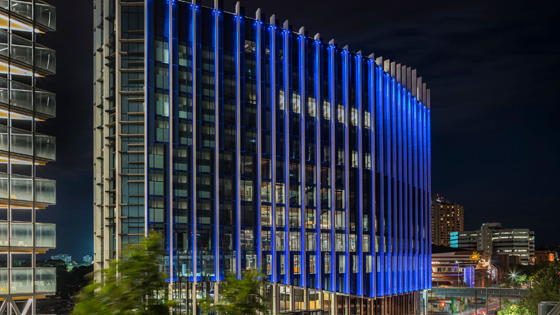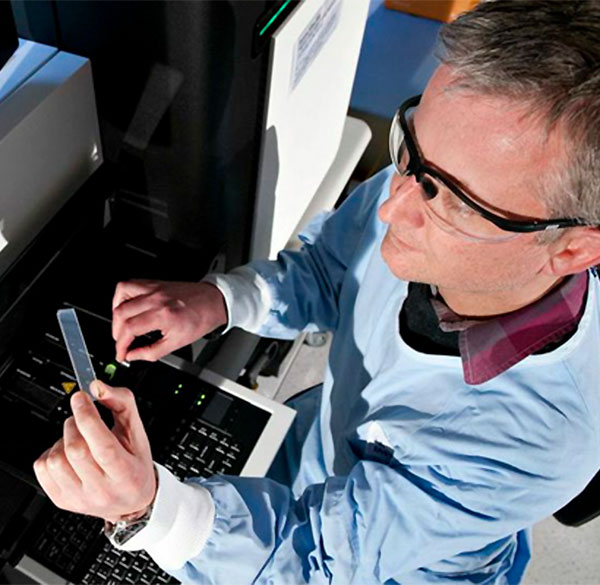
Dr Aidan Cousins, recipient of UniSA’s prestigious Norton Jackson Material Science and Engineering Medal
At the forefront of UniSA’s cancer research movement are our researchers dedicated to tackling one of our society’s most challenging and pervasive diseases – cancer – creating a groundswell of expertise unsurpassed in the State.
For Dr Aidan Cousins, talent and hard work were rewarded last year as he was the recipient of UniSA’s prestigious Norton Jackson Material Science and Engineering Medal for the translation of world-leading cancer research into industry.
This encouragement has led to him spearhead the development of a tool to help cancer doctors pinpoint the accuracy of surgery to remove cancers that have spread into other areas of the body, leading the project alongside Professor Benjamin Thierry from UniSA’s Future Industries Institute.
This revolutionary new device called the Ferronova Probe will solve a clinical problem in the successful treatment of cancers using magnetic tracers.
“Current procedures to find cancers that have spread through the lymphatic system into lymph nodes include injecting radioactive tracers into the tumour area that can be used to find the migration paths of cancer cells,” says Dr Aidan Cousins.
“There are problems with this approach due to the limitations of current technologies and the complexity of how lymph nodes are used by different cancers to spread.
“Through our research at UniSA, we developed a revolutionary new clinical tool that will improve the accuracy of surgery for the removal of metastatic solid cancers.”
For example, some cancers, like in the oesophagus or oral cavity, may not spread very far from the tumour, and can be lost amongst the background ‘noise’ of radioactivity in the injection site.
“Our magnetic tracers allow surgeons to locate where cancers have spread within millimetre accuracy, both improving the result of surgery and reducing the need for further operations.
“The magnetic tracers we use are also cheaper and have longer shelf-life than radioactive ones. This means that more smaller and regional hospitals could use the technology to save patients travelling to larger cities for treatment.”
This device will begin clinical trials for head and neck cancers in late 2018. It holds the potential to transform clinical procedure by creating a much more targeted approach to tracking cancer spread.
Every day our experts are getting one-step closer to saving more lives as well as improving the quality of life for cancer survivors. But they need your help.
To join fight cancer, please go to www.unisa.edu.au/jointhefight.

When you give today, 100% of your donation will go directly to the researchers - with no admin fees or hidden costs.
The University of South Australia (UniSA) is committed to tackling one of our most challenging diseases – cancer – by establishing the largest cohort of cancer researchers ever assembled in South Australia. Every day our experts are getting one-step closer to saving more lives as well as improving the quality of life for cancer survivors. But they need your help.
